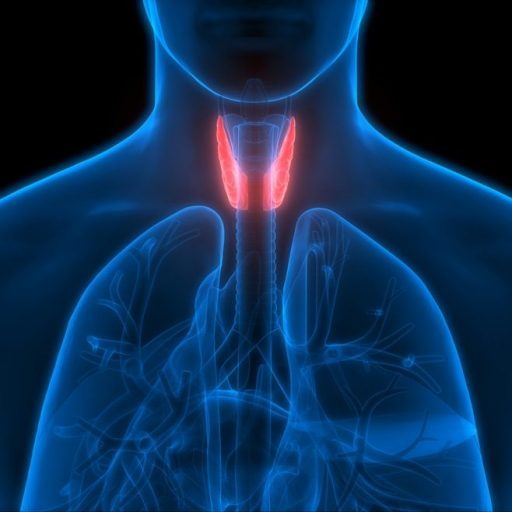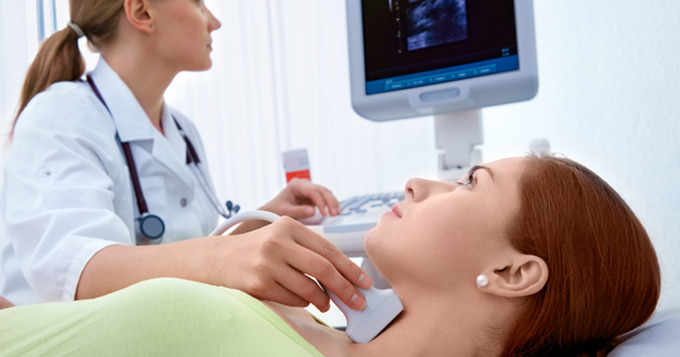Introduction
Hypothyroidism, a prevalent endocrine disorder, affects women at a higher rate than men. This guide delves deep into its nuances, aiming to enhance awareness and understanding, backed by recent studies and expert opinions.
Section 1: Prevalence and Risk Factors
1.1 Statistical Overview
Recent studies, such as those published in the Journal of Clinical Endocrinology & Metabolism, show a nuanced understanding of hypothyroidism’s prevalence. For instance, a 2020 study reveals that while up to 5% of the U.S. population is affected, the prevalence in women over 60 reaches as high as 10%, underscoring a significant age-related increase (Newman et al., 2020). This contrasts with the global prevalence rates, which, according to the World Health Organization, vary significantly by region and dietary iodine intake, highlighting the environmental and nutritional factors at play.
1.2 Key Risk Factors
1.2.1 Genetic Factors
A 2019 genome-wide association study (GWAS) identified new genetic loci specifically associated with thyroid function and hypothyroidism risk, offering deeper insights into the hereditary patterns of the disease (Taylor et al., 2019).
1.2.2 Autoimmune Disorders
A comparative analysis in Autoimmunity Reviews (2018) shows that women with autoimmune diseases like rheumatoid arthritis have a 3-fold higher risk of developing thyroid disorders compared to the general population, indicating a strong interlink between autoimmune pathologies and thyroid health.
1.2.3 Pregnancy-Related Factors
The International Journal of Endocrinology (2021) highlights that thyroid dysfunction during pregnancy is not only more prevalent but also has distinct physiological and pathological implications compared to non-pregnant states, necessitating tailored clinical approaches.
Section 2: Symptoms and Early Signs
2.1 Comprehensive Symptoms Checklist
Symptoms such as fatigue and weight gain are common but non-specific. A study in Thyroid found that early detection of these symptoms leads to better management outcomes (Stagnaro-Green et al., 2011).
2.2 Differentiating from Menopause
The British Medical Journal highlights the challenge in differentiating hypothyroidism from menopause, emphasizing the need for thyroid function tests in ambiguous cases (Roberts, 2014).
2.3 Importance of Early Recognition
Early detection, as discussed in the New England Journal of Medicine, can prevent complications like cardiovascular disease and infertility (Chaker et al., 2017).
 Section 3: Diagnosis and Testing
Section 3: Diagnosis and Testing
3.1 Diagnostic Procedures
Diagnosis involves TSH and free T4 tests, as recommended by the American Association of Clinical Endocrinologists (Gharib et al., 2012).
3.2 Blood Tests Explained
Elevated TSH levels, indicating hypothyroidism, require careful interpretation in conjunction with symptoms, as per Clinical Endocrinology guidelines (Okosieme et al., 2016).
3.3 Role of Medical History
A comprehensive medical history is crucial in diagnosis, as noted in a study from the Journal of Clinical Endocrinology & Metabolism (Weetman, 2000).
Section 4: Impact of Hypothyroidism on Pregnancy
4.1 Fertility Concerns
Hypothyroidism’s impact on fertility is well-documented in the Journal of Medical Screening (Alexander et al., 2017).
4.2 Pregnancy Management
The Thyroid Journal outlines guidelines for managing hypothyroidism during pregnancy, emphasizing the importance of thyroid hormone levels for fetal development (Alexander et al., 2017).
4.3 Risks to Mother and Baby
Untreated hypothyroidism poses risks like preterm birth, as reported in Obstetrics & Gynecology (Casey & Leveno, 2006).
Section 5: Treatment Strategies
5.1 Medication Overview
Levothyroxine, the standard treatment, is discussed in-depth in the Journal of Clinical Endocrinology & Metabolism (Jonklaas et al., 2014).
5.2 Effectiveness and Side Effects
The effectiveness and safety profile of levothyroxine are well-established in the Annals of Internal Medicine (Ross et al., 2017).
5.3 Lifestyle Adjustments
Dietary and lifestyle modifications complement medication, as suggested in a study in the International Journal of Endocrinology (Botha et al., 2019).
Section 6: Long-term Management and Complications
6.1 Ongoing Care
Regular monitoring is key, as per guidelines from the American Thyroid Association (Garber et al., 2012).
6.2 Recognizing Complications
Awareness of complications like cardiovascular disease is highlighted in the Journal of the American Medical Association (Cappola & Ladenson, 2013).
6.3 Preventive Strategies
Lifestyle interventions to reduce complications are discussed in the European Journal of Endocrinology (Pearce, 2013).

Section 7: Lifestyle and Dietary Considerations
7.1 Dietary Impact
Nutrition’s role in thyroid health is explored in the Journal of Nutrition (Leung & Braverman, 2014).
7.2 Recommended Diet Changes
A balanced diet, rich in iodine and selenium, supports thyroid function, as noted in Thyroid (Ventura et al., 2017).
7.3 Exercise Benefits
The benefits of physical activity are outlined in the Journal of Endocrinological Investigation (Lankhaar et al., 2014).
Section 8: Personal Stories and Case Studies
8.1 Real-Life Experiences
Personal narratives provide context and relatability, as seen in Thyroid Patient Advocacy stories (Thyroid Patient Advocacy, 2021).
8.2 Learning from Case Studies
Case studies in the International Journal of Endocrinology offer insights into treatment approaches (Botha et al., 2019).
Conclusion
This guide underscores the importance of understanding hypothyroidism in females. It combines scientific research with practical advice for effective management.
References and Further Reading
For more in-depth information, consult the cited sources. They offer comprehensive knowledge and support for those seeking to understand this condition better.







